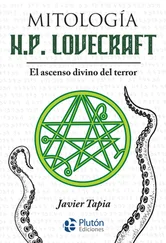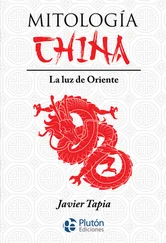Milton’s sarcasm was understandable under the circumstances. Only the day before, his C.O. had given Milton a new assignment in the upcoming invasion. The news, like all bad news, hadn’t registered at first. It was as if the C.O.’s words, the actual syllables he addressed to Milton, had been scrambled by the boys over in Intelligence. Milton had saluted and walked out. He’d continued down to the beach still unaffected, the bad news acting with a kind of discretion, allowing him these last few peaceful, deluded moments. He watched the sunset. He admired a neutral Switzerland of seals out on the rocks. He took off his boots to feel the sand against his feet, as if the world were a place he was only beginning to live in instead of somewhere he would soon be leaving. But then the fissures appeared. A split in the top of his skull, through which the bad news hissingly poured; a groove in his knees, which buckled, and suddenly Milton couldn’t keep it out any longer.
Thirty-eight seconds. That was the news.
“Stephanides, we’re switching you over to signalman. Report to Building B at 0700 hours tomorrow morning. Dismissed.” That was what the C.O. had said. Only that. And it was no surprise, really. As the invasion neared, there had been a sudden rash of injuries to signalmen. Signalmen had been chopping off fingers doing KP duty. Signalmen had been shooting themselves in the feet while cleaning their guns. In the nighttime drills, signalmen lustily flung themselves onto the rocks.
Thirty-eight seconds was the life expectancy of a signalman. When the landing took place, Seaman Stephanides would stand in the front of the boat. He would operate a sort of lantern, flashing signals in Morse code. This lantern would be bright, clearly visible to enemy positions onshore. That was what he was thinking about as he stood on the beach with his boots off. He was thinking that he would never take over his father’s bar. He was thinking that he would never see Tessie again. Instead, a few weeks from now, he would stand up in a boat, exposed to hostile fire, holding a bright light. For a little while, at least.
Not included in the News of the World: a shot of my father’s AKA transport ship leaving Coronado naval base, heading west. At the Esquire Theater, holding her feet off the sticky floor, Tessie Zizmo watches as white arrows arc across the Pacific. The U.S. Naval Twelfth Fleet forges ahead on its invasion of the Pacific, the announcer says. Final destination: Japan . One arrow starts out in Australia, moving through New Guinea toward the Philippines. Another arrow shoots out from the Solomon Islands and another from the Marianas. Tessie has never heard of these places before. But now the arrows continue on, advancing toward other islands she’s never heard of—Iwo Jima, Okinawa—each flagged with the Rising Sun. The arrows converge from three directions on Japan, which is just a bunch of islands itself. As Tessie is getting the geography straight, the newsreel breaks into filmed footage. A hand cranks an alarm bell; sailors jump out of bunks, double-time it up stairways, assuming battle stations. And then there he is—Milton—running across the deck of the ship! Tessie recognizes his skinny chest, his raccoon eyes. She forgets about the floor and puts her feet down. In the newsreel the destroyer’s guns fire without sound and, half a world away, amid the elegance of an old-fashioned cinema, Tessie Zizmo feels the recoils. The theater is about half-full, mostly with young women like her. They, too, are snacking on candies for emotional reasons; they, too, are searching the grainy newsreel for the faces of fiancés. The air smells of Tootsie Pops and perfume and of the cigarette the usher is smoking in the lobby. Most of the time the war is an abstract event, happening somewhere else. Only here, for four or five minutes, squeezed between the cartoon and the feature, does it become concrete. Maybe the blurring of identity, the mob release, has an effect on Tessie, inspiring the kind of hysteria Sinatra does. Whatever the reason, in the bedroom light of the movie theater Tessie Zizmo allows herself to remember things she’s been trying to forget: a clarinet nosing its way up her bare leg like an invading force itself, tracing an arrow to her own island empire, an empire which, she realizes at that moment, she is giving up to the wrong man. While the flickering beam of the movie projector slants through the darkness over her head, Tessie admits to herself that she doesn’t want to marry Michael Antoniou. She doesn’t want to be a priest’s wife or move to Greece. As she gazes at Milton in the newsreel, her eyes fill with tears and she says out loud, “There was nowhere I could go that wouldn’t be you.”
And while people shush her, the sailor in the newsreel approaches the camera—and Tessie realizes that it isn’t Milton. It doesn’t matter, however. She has seen what she has seen. She gets up to leave.
On Hurlbut Street that same afternoon, Desdemona was lying in bed. She had been there for the last three days, ever since the mailman had delivered another letter from Milton. The letter wasn’t in Greek but English and Lefty had to translate:
Dear folks,
This is the last letter I’ll be able to send you. (Sorry for not writing in the native tongue, ma, but I’m a little busy at the moment.) The brass won’t let me say much about what’s going on, but I just wanted to drop you this note to tell you not to worry about me. I’m headed to a safe place. Keep the bar in good shape, Pop. This war’ll be over some day and I want in on the family business. Tell Zo to stay out of my room.
Love and laughs,
Milt
Unlike the previous letters, this one arrived intact. Not a single hole anywhere. At first this had cheered Desdemona until she realized what it implied. There was no need for secrecy anymore. The invasion was already under way.
At that point, Desdemona stood up from the kitchen table and, with a look of triumphant desolation, made a grave pronouncement:
“God has brought the judgment down on us that we deserve,” she said.
She went into the living room, where she straightened a sofa cushion in passing, and climbed the stairs to the bedroom. There she undressed and put on her nightgown, even though it was only ten in the morning. And then, for the first time since being pregnant with Zoë and the last time before climbing in forever twenty-five years later, my grandmother took to her bed.
For three days she had stayed there, getting up only to go to the bathroom. My grandfather had tried in vain to coax her out. When he left for work the third morning, he had brought up some food, a dish of white beans in tomato sauce and bread.
The meal was still lying untouched on the bedside table when there came a knock at the front door. Desdemona did not get up to answer it but only pulled a pillow over her face. Despite this muffling, she heard the knocking continue. A little later, the front door opened, and finally footsteps made their way up the stairs and into her room.
“Aunt Des?” Tessie said.
Desdemona did not move.
“I’ve got something to tell you,” Tessie continued. “I wanted you to be the first to know.”
The figure in the bed remained motionless. Still, the alertness that had seized Desdemona’s body told Tessie that she was awake and listening. Tessie took a breath and announced, “I’m going to call off the wedding.”
There was a silence. Slowly Desdemona pulled the pillow off her face. She reached for her glasses on the bedside table, put them on, and sat up in bed. “You don’t want to marry Mikey?”
“No.”
“Mikey is a good Greek boy.”
“I know he is. But I don’t love him. I love Milton.”
Tessie expected Desdemona to react with shock or outrage, but to her surprise my grandmother barely seemed to register the confession. “You don’t know this, but Milton asked me to marry him a while ago. I said no. Now I’m going to write him and say yes.”
Читать дальше
Конец ознакомительного отрывка
Купить книгу












